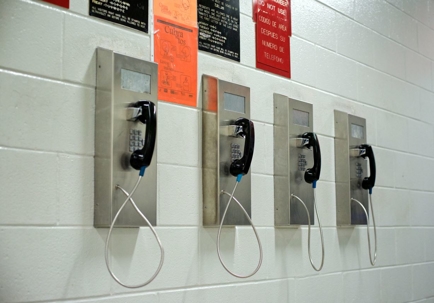You’ve heard it a hundred times in movies and television. A person is arrested, handcuffed, and sitting on a bench in the police station while an officer types away on an old fashion typewriter. The person handcuffed utters the phrase “I want my phone call.” But, do you actually get a phone call after being arrested in real life?
The short answer is yes, but that right is not triggered until you are taken before a magistrate or judge. Several steps take place after a police officer places a person under arrest. Depending on the circumstances, that individual will most likely be transported to the police station for what is called “processing.” There, a person provides his or her background information, such as their name, date of birth, address, etc. Then, that person is photographed and fingerprinted.
After being processed, a person is required to be taken before a magistrate or judge to be arraigned. This is where the right to a phone call comes into existence.
At the arraignment, West Virginia law requires a magistrate or judge to “provide the defendant reasonable means to communicate with an attorney or with at least one relative or another person for the purpose of obtaining counsel or arranging bail.” W. Va. Code § 62-1-6.
The law further provides that “[t]he defendant shall not be committed to jail or removed from the county of arrest until he has had a reasonable opportunity to confer with counsel or to arrange bail.” Id.
So, you do have a legal right to communicate with another person for the purpose of obtaining an attorney or arranging bail, but you do not have that legal right while being processed at the police station. It can only be asserted at the arraignment.
